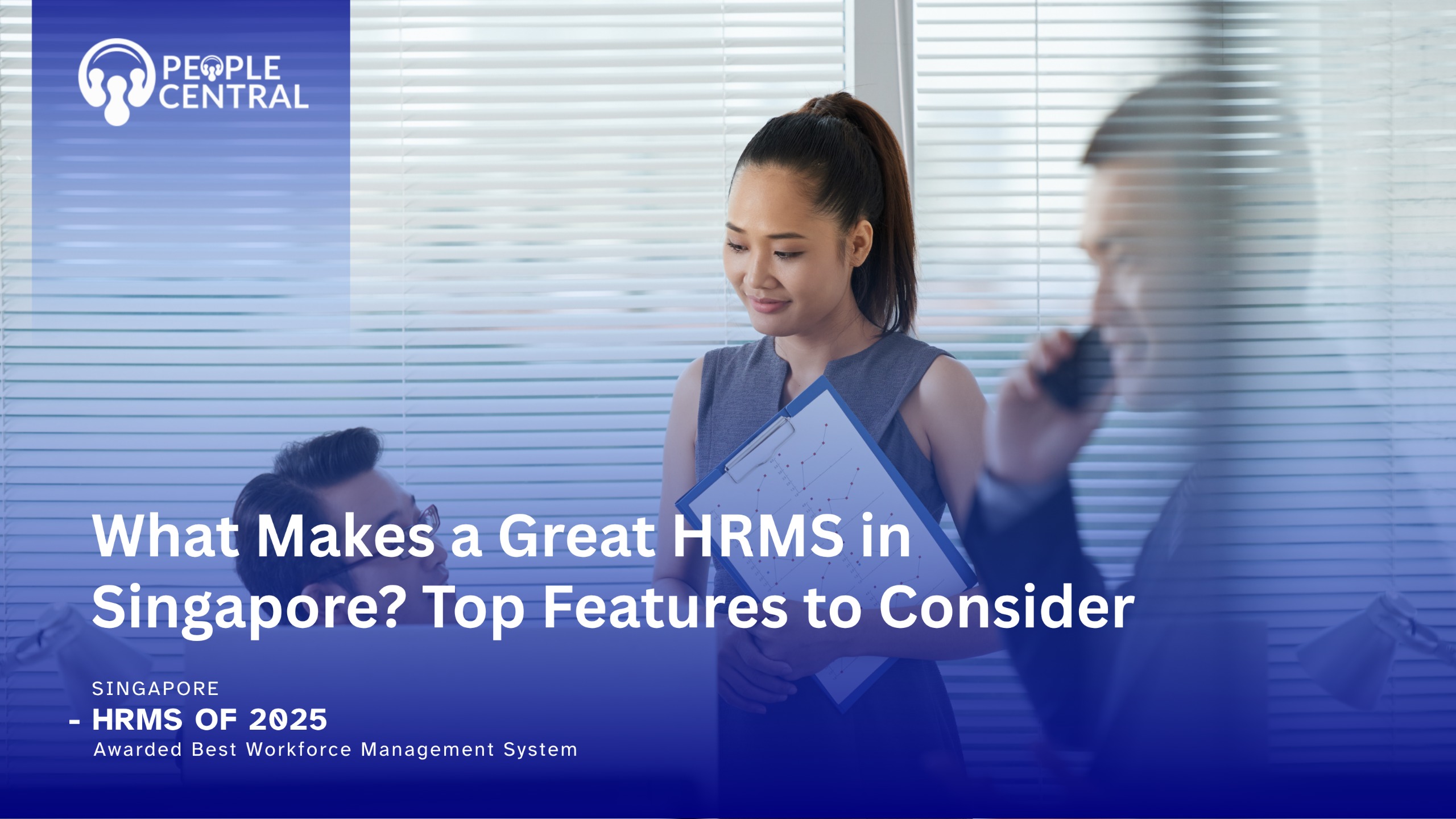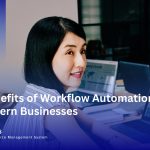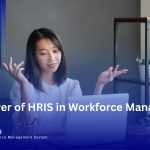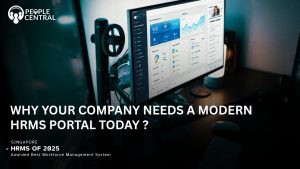Introduction
Have you ever noticed how running HR in Singapore has turned into a balancing act? It’s keeping track of time-off and also making sure salaries are paid on time. There’s legal fine print to follow, rising expectations from employees, and this growing need to bring everything online.
Trying to manage all that with disconnected tools or half-manual systems can slow a team down, cause errors, or worse, lead to compliance slip-ups. This is what a strong HRMS does as the core system, keeping things steady.
In this conversation, we’re going to unpack what matters when choosing a Human Resource Management System here in Singapore.
Why HRMS Matters in Singapore
Anyone running HR in Singapore knows it’s not just about tracking leave or doing payroll. You have to take care of CPF, IRAS, MOM, and all such things as well.
And on top of that? People aren’t just working from the office now. Teams are split across locations, some remote, some hybrid, and somehow you’re expected to make sure everything is okay.
That’s why more companies are switching to proper HRMS platforms, because the day-to-day stuff needs to be handled with ease.
Also Read: Trends in Performance Appraisal 2025: AI, Feedback & HR Innovations
Top Features to Look For in a Singapore HRMS
Here are the key capabilities any HRMS should offer to support teams in Singapore effectively.
1. Localised Payroll & Compliance
- In Singapore, payroll isn’t just about salary; you’ve CPF, SDL, IRAS, IR21, and a bunch of other things to get right.
- A solid HRMS should calculate and process all of that for you, without you having to double-check every line.
- It can also generate compliant reports, send reminders, and even submit filings if possible.
- That way, your team isn’t stressed over penalties or last-minute scrambling.
2. Leave and Attendance Management
- Leave here isn’t just annual leave. You need to track sick leave, childcare leave, maternity/paternity leave, and all the public holidays too.
- The HRMS should let you create flexible policies to match your company’s or MOM’s rules.
- Managers should be able to approve or reject requests with full visibility into the team schedule.
- If it syncs with attendance, even better; that means fewer conflicts and smoother planning.
3. Employee Self-Service & Mobile Access
- No one wants to email HR for every small update or request.
- A good HRMS lets employees apply for leave, submit expense claims, check payslips, and update their details anytime.
- And it needs to work on mobile; people expect that now.
- HR teams get more time back, and employees get what they need faster.
4. Performance & Talent Management
- A strong HRMS helps with onboarding, goal setting, check-ins, and training.
- It also lets you assign learning paths or development tracks based on role or seniority.
- This not only helps people grow faster but also keeps them more engaged and likely to stay.
5. Reporting & Analytics
- Data helps you make smart decisions.
- The HRMS should give you dashboards and reports that cover payroll, headcount, leave usage, resignations, etc.
- Custom reports can help you track exactly what matters to your company.
- Instead of gut feeling, you’re working with facts.
6. Integration, Scalability & Security
- Your HRMS shouldn’t live in a bubble, and must be able to connect with other systems like accounting tools, job boards, and access control.
- And also scale as your team grows, without needing a new setup every year.
- And with Singapore’s PDPA laws, security is non-negotiable. You need strong controls over who sees what.
- This protects employee data and builds trust in your HR processes.
Also Read: Step-by-Step Guide to Completing IR8A Submission 2025
One HR Platform That’s Getting It Right
Let me tell you about a platform I’ve seen really make a difference here in Singapore: PeopleCentral. It is a cloud-based HRMS that has Singapore’s unique requirements in mind, which is rare. Over 1,000 businesses already use it. Let’s see why:
- Fully Compliant Payroll Engine
It takes care of CPF, SDL, IR8A, all the stuff that normally stresses people out. The system manages it automatically, so you don’t miss deadlines or make reporting mistakes. - Leave, Claims & Attendance? All Built-In
Everything’s in one place, so there’s no need to struggle between spreadsheets, emails, or different apps. - Mobile Self-Service for Employees
People can apply for leave, check payslips, or submit claims straight from their phones, without needing to contact HR every time they need something. - Performance, Onboarding & Learning Tools
It helps with managing appraisals, onboarding new team members, and even assigning learning paths based on their role. - Instant Analytics & Alerts
HR can see what’s going on at any moment, whether someone hasn’t completed onboarding or if a department is seeing high absenteeism. - Strong Security
It is ISO 27001 certified and meets all the PDPA data protection requirements, so your employee data is in safe hands.
Two things that impressed me:
First, AI Signal Watch, this is a smart feature that keeps an eye on key HR workflows like onboarding and flags anything that’s falling behind. So nothing gets missed.
Second, there’s ABBY, the platform’s virtual assistant. It’s like a chatbot that answers employee questions instantly. Whether someone wants to know about their leave balance or how to access a payslip, ABBY handles it, which saves HR tons of time.
If you’re looking to simplify HR and make things work better without chasing people or missing deadlines, PeopleCentral is one platform worth checking out.
Conclusion
I think a strong HRMS can do more than just manage admin. It should be able to help your business run more efficiently.
If we are talking about Singapore, then it should be able to handle things like CPF, IRAS filings, and PDPA securely. So I suggest going for tools that offer the features that help you manage all of this.
Because, with the right system, HR becomes more useful to the whole business.








 5
5


























